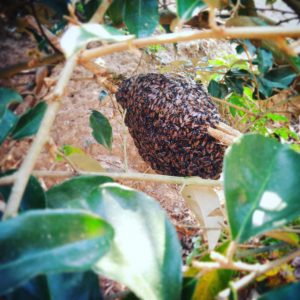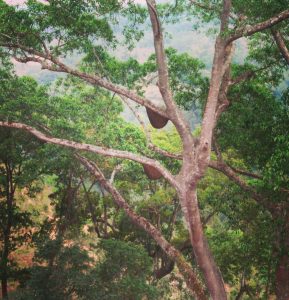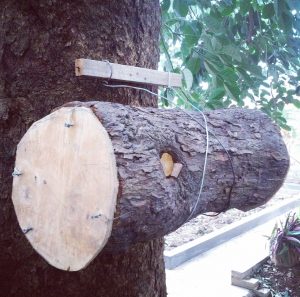China has so far avoided the massive losses of bees seen in the West, but the country’s diverse range of native bees face their own set of growing threats. A new study argues that these threats could have disastrous consequences for global food security and biodiversity.
The alarming decline of bee populations in the United States and Europe has rightfully been drawing attention in recent years, as much of the food we eat would be impossible to produce without the hard work of bees and other insect pollinators. This is also true in Asia, where food production is almost wholly dependent on insect pollination, and where, as a result, any major decline in bee populations could severely disrupt the global food supply.
A recent study of XU Jianchu’s group from Kunming Institute of Botany, Chinese Academy of Science (KIB/CAS), World Agroforestry Centre (ICRAF) and a team of researchers from various institutions in China, USA, UK argue that urgent action is needed to ward off the risk of bee losses occurring in China, a country that is home to an amazing variety of bee diversity facing a unique set of threats.

Wild honey bees (Apis florea) in Yunnan, southwest China. (Image by Jonathan TEICHROEW)
The study highlights the situation of pollinators in China – and how little research has been carried out in this area. Unlike in the West, the majority of Chinese bees are rarely transported across long distances in order to pollinate specific crops. Instead, the majority of hives are usually kept in the same place year-round. And where commercial farms in Europe and the United States largely rely on a single species – the western honeybee –Chinese crops are often pollinated by a wide range of endemic species, which evidence suggests may be more resistant to pests and diseases.
In fact, the diversity of Chinese bee species is unparalleled: the Qinghai-Tibetan Plateau, for example, contains more bumblebee species than anywhere else in the world. Perhaps as a result of their great diversity, Chinese bees seem to have been spared the massive losses seen in the West.
However, the study’s lead author, Jonathan Teichroew points out that “research on threats to pollinators in China is extremely sparse, and the few studies that do exist point to alarming declines in wild bee populations in some areas of China. In some cases, bees have entirely disappeared: farmers in one county in Sichuan are now forced to pollinate their fruit crops by hand because natural pollinators have been wiped out.”
Much of China’s land has been transformed by massive infrastructure projects, open-pit mining, deforestation, and the spread of intensive agriculture. The scale of these land-use changes have drastically reduced the areas in which wild bee species can thrive.
At the same time, the overuse of chemical pesticides has become commonplace among China’s farmers: pesticide use in China is now at an all-time high, with application rates many times greater than those of most developed countries. As a result, farmers who depend on pollinators may unwittingly be poisoning their insect allies.

Wild giant honey bee (Apis dorsata) hives in Yunnan. (Image by Jonathan TEICHROEW)
Threats to China’s bees should not only concern Chinese farmers: not only would global food security be affected by further declines in Chinese bee populations, but China’s extraordinary reservoir of bee biodiversity could be critical to fighting global pollinator diseases and pests in the future. The study’s authors have therefore called for urgent action, and have suggested several ways in which China’s bees could be protected. First, given the existing paucity of scientific studies on Chinese bees and the threats they face, far more China-specific research is needed. Second, China’s huge government projects provide an opportunity to provide bee habitat at a large scale. Third, the overuse of pesticides needs to be accorded greater priority by the Chinese government. Fourth, the authors propose using a “land-sparing, land-sharing” framework to promote the creation of a patchwork of diverse agricultural landscapes.
The study entitled “Is China’s unparalleled and understudied bee diversity at risk?” has been published on Biological Conservation: http://dx.doi.org/10.1016/j.biocon.2016.05.023

Traditional Chinese bee hive. (Image by Jonathan TEICHROEW)
Contact:
Key Laboratory for Plant Diversity and Biogeography of East Asia, CAS
Kunming Institute of Botany
Prof. Dr. XU Jianchu
Email:jxu@mail.kib.ac.cn




